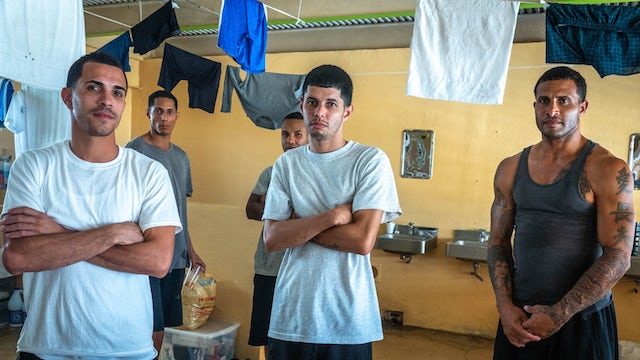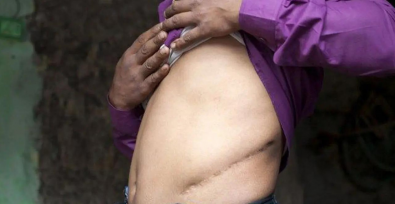Hurricane Maria devastated Puerto Rico last year, leaving many parts of the island in disrepair.
In the aftermath, Puerto Rico’s unelected federal financial oversight board – also known as La Junta — introduced a series of controversial austerity measures aimed to deal with the island’s multi-billion dollar debt crisis.
Related Campaign: Help stop forced labor in U.S. detention.
Buried within the 200-page document outlining the measures is a new policy to ship a third of Puerto Rico’s prison population – 3,200 inmates – to private prisons thousands of miles away within the US. The Puerto Rican government claims it will save $400m over four years, but human rights activists say it is a disaster in the making.
“This is government sponsored human trafficking. You are transferring people basically against their will,” said William Ramirez, executive director of the Puerto Rico American Civil Liberties Union.
“Even if you say it’s consensual, the reality is that you can’t provide consent freely if you’re a ward of the state, because you’re not free. And secondly, you’re not given the information you need to actually give consent. And finally, it’s all being done for profit.”
The Guardian reports:
“This is something that we need to do due to the economic situation we have in government,” corrections minister Erik Rolón said. “It’s an initiative that represents a very cost-effective way to provide our service.”
The department hopes to transfer between around 1,200 inmates in 2019, with cohorts of 700 following for the next three years. At the same time it plans to permanently shutter an as yet unspecified cluster of government-run prisons on the island.
Despite Rolón describing the plan as “99% complete” the government has not signed a contract with the only private prison company, CoreCivic, still in the tender process, and many of the finer details appear unresolved. Neither CoreCivic nor Rolón would say how much the contract was valued at.
Rolón insisted his department would re-orient the whole prison population to the facility now being considered – the La Palma correctional center in Eloy, Arizona – before signing any contract.
In 2010 a California inspector general report found serious flaws in the standard of care at La Palma, including: overuse of solitary confinement, a failure to provide video conferencing for inmates to contact family members, a failure to provide a “full complement” of programming for Hispanic inmates, and a range of basic security and safety flaws.
On top of this, a 2016 independent review by the justice department found that private prisons are drastically more unsafe and more punitive than those operated by the government. The report prompted then-President Obama to order the end of federal government’s use of private prisons, but that order has since been reversed under the Trump administration.
CoreCivic, the private prison company in talks with the Puerto Rican government, currently faces a number of lawsuits across the US where inmates allege that they were subjected to forced labor and put in solitary confinement if they refused.
Rolón insists that Puerto Rico’s inmate transfer plan is entirely voluntary.
“I know I have to guarantee the rights of inmates. We’re not going to send inmates to another state, to a private prison to suffer what they don’t suffer here,” he said.







Freedom United is interested in hearing from our community and welcomes relevant, informed comments, advice, and insights that advance the conversation around our campaigns and advocacy. We value inclusivity and respect within our community. To be approved, your comments should be civil.
Better still, we have strong, resilient communities under direct democracy, where there is no incentive for criminality and the need for private prisons to make big business and slave labour out of crime. Unfortunately most of the worst criminals are in power: state governments and those heading up big business at the expense of communities, our environment and health. Destroy power, not people!
Not-for-profit is the better idea. For profit means prisons have the incentive to cut costs, by reducing standards to maximise their profit margins at the expense of human rights. There is no incentive to rehabilitate prisoners but maximise their intake, expand their prisons, prison population and thus slave labour for the sake of profit. Finance made by not-for-profit is put back into improving the prison, prisoners & rehabilitation, according to need, not shareholders on the stock market.
The US complains that Russia is using forced labour and is doing the same by accepting prisoners from another country in for profit prisons. Exploitation like this diminishes the humanity of a whole society when this is allowed to happen and protest against it is not encouraged. It is a stain on the whole of society
and no one benefits. Everyone has human rights whatever they have done and those who deny these rights to any one diminish themselves.
Thank you for your clear explanation. I think I have mistakenly thought that some of these types of prisons are providing vocational training which they are connecting to a resource for profit making, but I think I let my hopefulness in humanity feed my naivete.
Great comment.